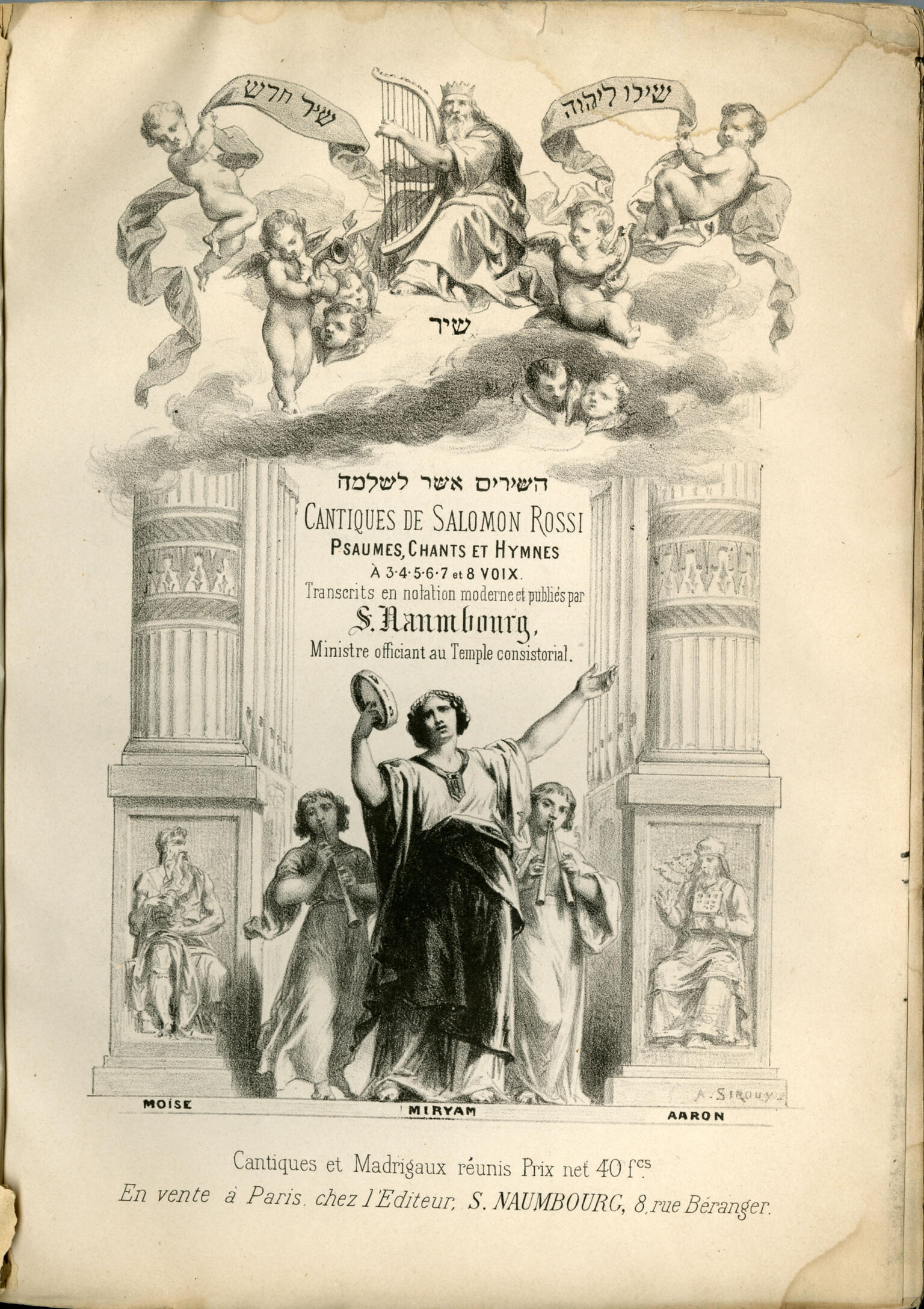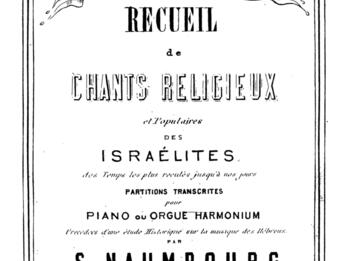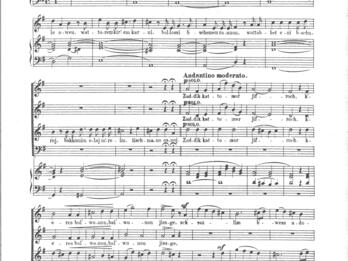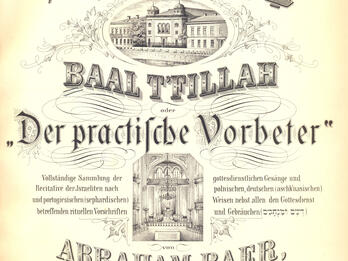Title Page for His Version of Salamone de Rossi’s Hashirim asher le-Shelomoh (The Songs of Solomon)
Samuel Naumbourg
Salamone de Rossi
1876

Creator Bio
Samuel Naumbourg
Born near Ansbach, Bavaria (now in Germany), Samuel Naumbourg was raised in a family connected to a long lineage of cantors. After receiving musical training in Munich, Naumbourg settled in Paris in 1843, establishing himself as an influential choirmaster among the city’s synagogue choirs. Over the course of his career, Naumbourg compiled and published synagogue music for a broad audience, drawing on both his southern German heritage and conventions of opera popular in France at the time to give his music wide appeal.
Creator Bio
Salamone de Rossi
Salamone de Rossi was the most prominent Jewish composer of the late Italian Renaissance, as well as the last (and possibly most important) Jewish court musician. He served the Gonzaga rulers of Mantua, entering the service of Duke Vicenzo I as a singer and viola player in 1587. He later became leader of an ensemble of mainly Jewish musicians that achieved some fame and was even loaned to neighboring courts. In 1606, he was freed from the requirement of wearing the Jewish badge. De Rossi remained in the service of the duke until 1622. Following the death of the last Gonzaga and the sack of Mantua, de Rossi fled to Venice. He composed more than three hundred works, published between 1589 and 1628, including secular vocal works in Italian, instrumental music, and sacred songs. His most important work is Ha-shirim asher li-Shelomoh, thirty-three settings for three to eight voices, for Hebrew texts used in festive synagogue services.
You may also like

Aggudat Shirim
Song of the Railway

Psalm 92, Od yenuvun (They Shall Still Bring Forth)



